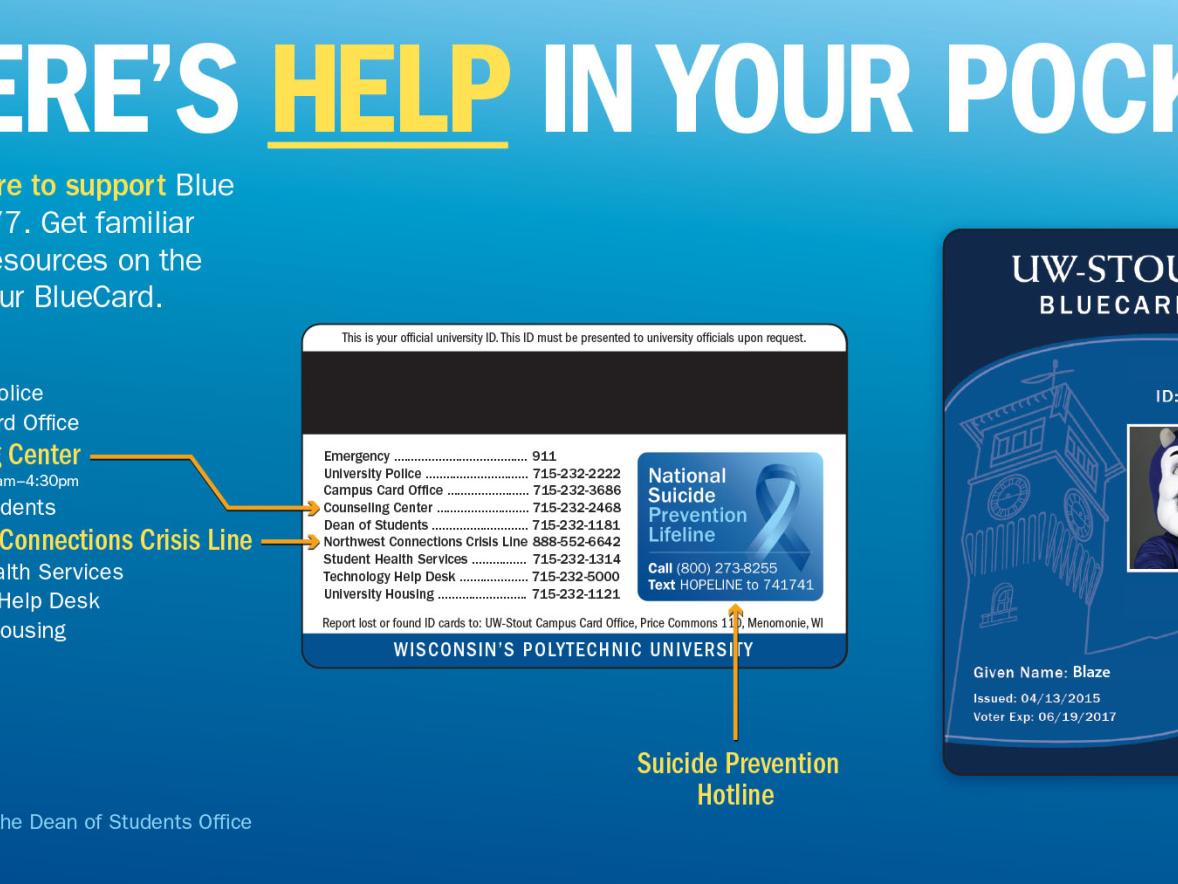Let’s be honest, nobody is super excited about finals. There is a mix of emotions, and it can be a tough time for some students, but hard work and balancing priorities pay off.
On the brighter side, the semester is almost over, and a very deserved break is almost here.
To help you succeed on your finals here are a few helpful tips.
Don’t Procrastinate.
Don’t wait until the last minute to start reviewing. Every minute you wait to study could lead to more stress. Give yourself at least two weeks before your exam. That way you are not rushing to figure out what you do not know, and you allow time to get help if needed.
Find a Tutor. Ask for Help.
Everyone struggles with at least one subject, so do not be afraid to seek help. Reach out to your professor and ask for assistance. Stout also provides different tutoring options for a multitude of subjects through the advisement center. Or find someone in your class who knows the subject better and can help you.
...Or Find a Study Buddy.
Compare notes, quiz each other on the material, and teach each other. Two heads can be better than one when studying for an exam. You can even have a study group. If you are in an online class, you can create a virtual study group with other students in your class or ask your professor to connect you with a study buddy.
One of the many benefits of studying with a partner as explained by ThoughtCo.:
“A study partner will understand some methods or problems that you don't. You will be able to explain some of the problems to your partner in return. It's a great trade-off!”
Find a Study Room/Quiet Place to Study.
Keep your focus. Studying in a loud or busy environment can be very distracting, so find your favorite study space where you know you can keep your head in the books. The library has reservable study rooms that can hold up to 12 people, so you and your study buddy or group will have plenty of room to work.
Other places on campus that students like to study are outside the Memorial Student Center (weather permitting), on the MSC's upper floor, and in Merle M. Price Commons.
Review Previous Tests & Quizzes.
Some classes let you keep your previous tests or quizzes. These are great tools to review because more than likely there will be similar questions on the final exam. Previous tests and quizzes are a great place to start if you are unsure what to study.
Write It Out.
Rewrite your notes. Find a blank whiteboard and write out your notes or pretend like you are teaching a class. It has been scientifically proven that writing things out helps you better remember things.
According to Science Daily, the University of Tokyo explains:
“A study of university students and recent graduates has revealed that writing on physical paper can lead to more brain activity when remembering the information an hour later. Researchers say that the unique, complex, spatial and tactile information associated with writing by hand on physical paper is likely what leads to improved memory.”

Try Flashcards.
Write down key terms and ideas to study anywhere. You can take them out between classes or review them while you are eating lunch. Also just writing the term and definition down to create the flashcard helps keep the information in your brain.
If you are more tech-savvy, there are many apps and websites out there to create digital flashcards. These sites allow you to have access to these flashcards on your phone and computers. The downfall to digital is you need to have an internet connection to access them. Here is a list of a few options: Quizlet, Visme, and Brainscape.
Take Breaks.
Whether you want to follow the 40-20 rule or 45-15 rule set a time limit for how long you study and then take a timed break. During your break, walk away from where you are studying to disconnect from what you just reviewed. This allows your brain to not get overworked, so you can fully focus while you are studying.
According to The Wellness Thesis:
“Micro-breaks, lunchtime breaks and longer breaks, have all been shown to have a positive relationship with wellbeing and productivity. By taking regular breaks you can boost your performance.”
Eat Healthy. Stay Hydrated. Get Quality Sleep.
These three necessities are often sacrificed during finals season, but they can be the most important. Your body and brain need quality fuel and energy to function and no amount of coffee, energy drinks, or sugary foods can replace actual substance.
According to The Sleep Foundation:
“Students who nap more tend to have higher GPAs. Napping right after you learn something can help improve your memory.”
Through studying, preparing the best way for you and taking care of your body, finals will be a breeze. You got this!







